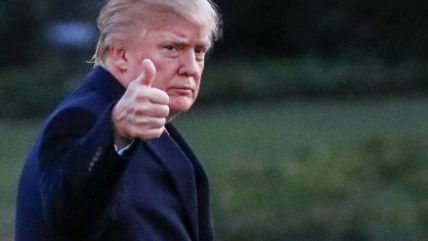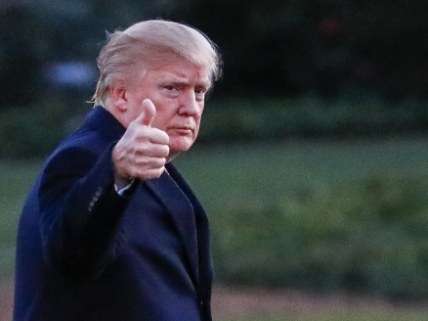Trump Wiretapping Circus Turns Real Surveillance Issues into Crazy Sideshow
Fight over government control ignores issue of snooping on all the rest of us.


Edward Snowden may be a household name now, but the sad reality has been that federal surveillance-related issues and stories have been getting less attention and do not draw the interest of Americans the way they did back when Snowden first started blowing the whistle.
So one might assume that surveillance experts and anybody who writes about "deep state" would maybe be excited that President Donald Trump's tweets over the weekend claiming that President Barack Obama tapped Trump Tower would lead to an increased visibility of these issues back in the press.
Count this surveillance reporter out—and maybe a little frustrated. Part of the problem is that distilling the extremely complicated system of federal foreign surveillance regulations into general news stories leads to confused and mistaken reporting. I'm not going to go over what all the reporting about Trump's claim of being wiretapped is getting wrong but Julian Sanchez over at Just Security has a helpful explainer of what people might be misunderstanding. I will echo Sanchez's note that President Barack Obama's administration has been working on changing the regulations to relax raw intelligence sharing between federal agencies for a while now and has nothing to do with Trump. The Breitbart piece that seems to have inspired a lot of this weekend heat seems to conflate different types of surveillance authorities all under the same umbrella.
Now take all that confusion about how foreign intelligence surveillance actually works and add the current panic-based, personality-focused news cycles, fed by both Trump supporters and opponents and happily abetted by media outlets. There is plenty to discuss about problems with how surveillance authorities are granted here in the United States—the incidental collection of our own private data, the opaqueness of the Foreign Intelligence Surveillance Court (FISC), and the potential for intelligence sharing to be abused domestically to bypass the warrant requirements of the Fourth Amendment.
But none of those policy issues are being brought up in this fight at all. It's all about Trump vs. President Barack Obama. This fight just turns real surveillance issues into political intrigue and just another tool in the battle over who controls the executive branch. Everything about this issue has been and will continue to be analyzed in the terms of what it all means for Trump—and only Trump.
Last Thursday, just two days before this wiretap complaint blew up on Twitter and in the media, White House representatives told Reuters that it didn't support any potential reforms to federal surveillance laws that might restrain the government's authority to collect data and communications of Americans. That is to say, at the same time that Trump is complaining that the federal government was inappropriately snooping on him, his administration does not want to do anything at all to reduce the likelihood that the federal government inappropriately snoops on you.
So, frustratingly, this whole circus makes it feel even less likely to result in positive reforms to surveillance authorities, because it's turned the entire civil rights issue into a chest-thumping contest about whether Russia is unduly influencing Trump or his people.
A panel of experts and I will be reminding citizens about how this fight actually impacts their own privacy rights at South by Southwest in Austin this Friday. Hopefully we'll be able to explain to folks that there's a whole lot more to this than Trump being upset.


Show Comments (105)